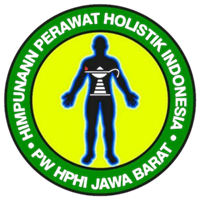Analysis of Factors Contributing to Low Bed Occupancy Rate in Inpatient Wards
DOI:
https://doi.org/10.56359/gj.v6i2.812Keywords:
bed occupancy rate, causal factors, inpatient roomsAbstract
Introduction: The Bed Occupancy Rate (BOR) is an important indicator in assessing the efficiency of hospital bed utilization. A low BOR can reflect poor service quality and impact hospital revenue.
Objective: This study aims to analyze the factors causing the low BOR in inpatient wards of Sejiran Setason Regional General Hospital in 2025 based on the 5M management approach (Man, Material, Method, Machine, and Money).
Method: This study used a qualitative design with a phenomenological approach. The research informants consisted of primary, supporting, and key informants selected purposively. Data collection techniques included in-depth interviews, observation, documentation, and focus group discussions (FGDs). Data analysis employed the Miles and Huberman technique, which encompassed data reduction, data presentation, and conclusion drawing.
Result: The results indicate that the low BOR is caused by a shortage of healthcare workers, limited facilities and infrastructure, suboptimal service flow, underutilization of information systems, and budget constraints. Furthermore, external factors such as transportation access, socioeconomic conditions, and community preferences also contribute.
Conclusion: The study concluded that the low BOR is influenced by a combination of internal and external factors. It is recommended that hospitals conduct a comprehensive evaluation of their service management systems, improve resources and facilities, and strengthen public education and promotion strategies to increase patient trust and visits.
Downloads
References
Afdhal, F., Arsi, R., & Saputra, A. U. (2024). Edukasi Pemberian Rebusan Air Jahe Campur Madu Terhadap Batuk Pilek Penderita Ispa Di Puskesmas 23 Ilir Kota Palembang. Hikamatzu| Journal of Multidisciplinary, 1(1).
Anisah, R. L. (2025). Terapi Inhalasi Sederhana (Minyak Kayu Putih) Untuk Mengatasi Ketidakefektifan Bersihan Jalan Napas Pada Anak Dengan Infeksi Saluran Pernafasan Akut (Ispa). Jurnal Ilmiah Keperawatan Dan Kesehatan Alkautsar (Jikka), 3(2), 68–77.
Arina Manaskana, A. (2025). Penerapan Terapi Murrotal Ar Rahman Dan Relaksasi Benson Untuk Mengurangi Kecemasan Pada Pasien Pre Operasi Katarak Di Rsu Assalam. Universitas Kusuma Husada Surakarta.
Azzahra, N. Z. (2025). Studi Kasus: Efektivitas Teknik Batuk Efektif Pada Ny. P Dengan Pneumonia Kronis Di RS. Pku Muhammadiyah Yogyakarta. Menulis: Jurnal Penelitian Nusantara, 1(6), 1051–1055.
Chen, T., Liu, B., Liu, D., Luo, Q., Wang, Y., Wang, X., … Cai, R. (2024). Virucidal effects of eucalyptus essential oil on porcine reproductive and respiratory syndrome virus. Frontiers in Microbiology, 15. https://doi.org/10.3389/fmicb.2024.1443295
Diartin, S. A., & Putri, S. A. (2024). Pengaruh Aromaterapi Tea Tree Oil Pada Anak Dengan ISPA. NAJ: Nursing Applied Journal, 2(1), 64–77.
Erlangga, M., & Sudianto, S. (2025). The Use of Inhalers While Fasting from the Perspective of Ibnu Mas’ ud Al-Kasani and Ibnu Qudamah: A Case Study in Pegajahan District. Jurnal Mediasas: Media Ilmu Syari’ah Dan Ahwal Al-Syakhsiyyah, 8(1), 49–64.
Heltty, H., Yati, M., Risky, S., Marhanto, E. D. P., Lolok, N., Juliansyah, R., & Ramadan, M. F. (2024). Terapi Inhalasi Sederhana Menggunakan Minyak Kayu Putih Pada Pasien Ispa. Jurnal Keperawatan Dan Kesehatan, 15(2), 114–121.
Mediarti, D., Sashabila, A., & Syokumawena, S. (2025). Implementasi Keperawatan Manajemen Nyeri Masalah Nyeri Akut Pasien Pasca Bedah Benigna Prostat Hiperplasia. JKM: Jurnal Keperawatan Merdeka, 5(1), 9–15.
Ners, K. I. A., & Dinillah, A. L. (n.d.). Asuhan Keperawatan Bersihan Jalan Napas Tidak Efektif Dengan Intervensi Fisioterapi Dada Menggunakan Metode Active Cycle Of Breathing Technique (Acbt) Pada Anak Dengan Ispa.
Seva, P., Sari, R. P., Rahim, R., Ulfa, M., Rossita, T., Rohani, T., & Azissah, D. (2025). Penerapan Inhalasi Sederhana Menggunakan Minyak Kayu Putih Untuk Meningkatkan Bersihan Jalan Nafas Pada Anak Dengan Ispa Di Wilayah Kerja Kelurahan Ponorogo RT 07 Tahun 2025. Jurnal Gotong Royong, 2(1), 53–58.
Sinaga, D. (2025). Buku Ajar Metode Penelitian (Penelitian Studi Kasus). UKI Press.
Suprapti, E., Astuti, Y., & Anggarawati, T. (2024). Pengaruh Terapi Inhalasi Sederhana Untuk Meningkatkan Bersihan Jalan Napas pada Anak Dengan ISPA di Wilayah Puskesmas Bugangan Kota Semarang. Jurnal Ilmu Kesehatan Dan Gizi, 2(3), 212–219.
Suryani, T., Sampurna, R. H., & Purwanti, D. (2024). Evaluasi Dimensi Produk Program Pengendalian Penyakit Infeksi Saluran Pernapasan Akut (P2–ISPA) Pada Balita Di Puskesmas Selabatu Kota Sukabumi. Innovative: Journal Of Social Science Research, 4(4), 15297–15308.
Taufik, R., Hamzah, H., & Harun, L. (2024). Analisis Faktor Yang Berhubungan Dengan Kejadian ISPA Pada Balita di Wilayah Kerja Puskesmas Sebamban 2. Jurnal Promotif Preventif, 7(5), 981–987.
Wibowo, D. A., & Ginanjar, G. (2020). Hubungan Faktor Determinan Penyakit Infeksi Saluran Pernapasan Akut (Ispa) Dengan Kejadian Inpeksi Saluran Pernafasan Akut (Ispa) Pneumonia Pada Balita Di Wilayah Kerja Puskesmas Cipaku Kabupaten Ciamis Tahun 2020. Jurnal Keperawatan Galuh, 2(2), 43.
Yuliani, W., & Supriatna, E. (2023). Metode penelitian bagi pemula. Penerbit Widina.
Downloads
Published
How to Cite
Issue
Section
License
Copyright (c) 2025 Ira Paloma, Maryana, Rezka Nurvinanda

This work is licensed under a Creative Commons Attribution 4.0 International License.















